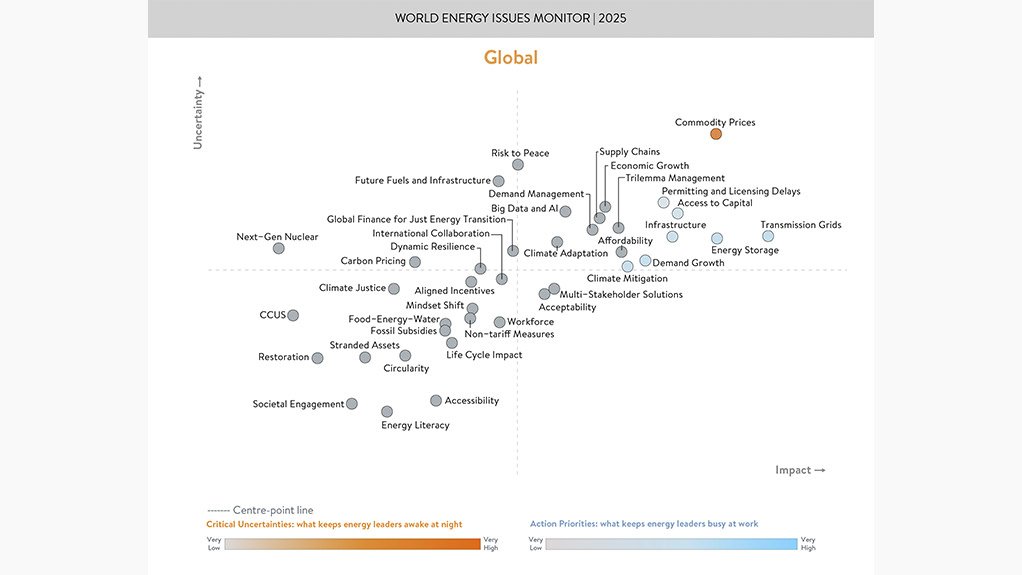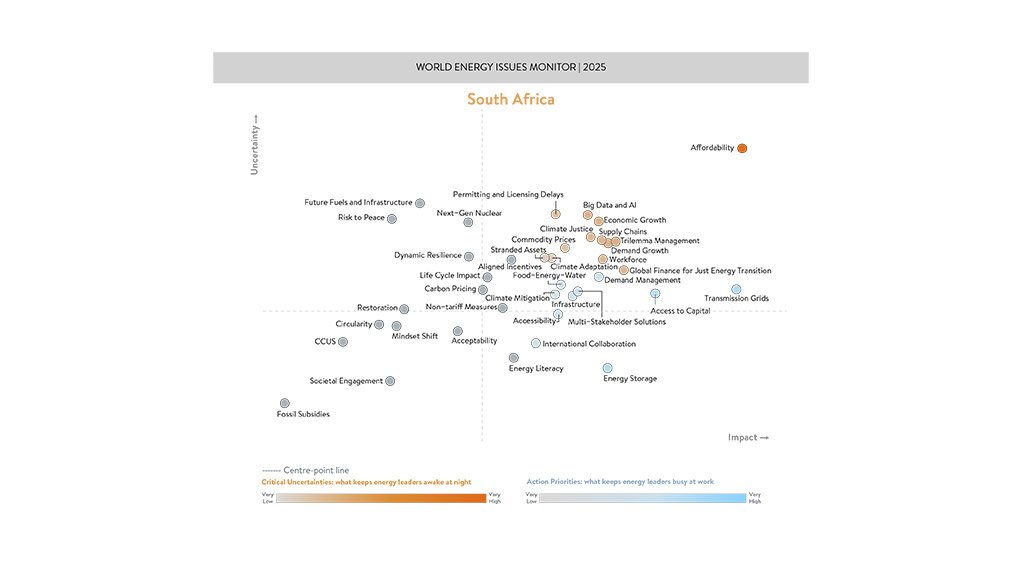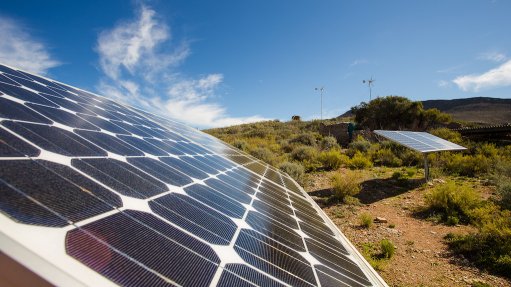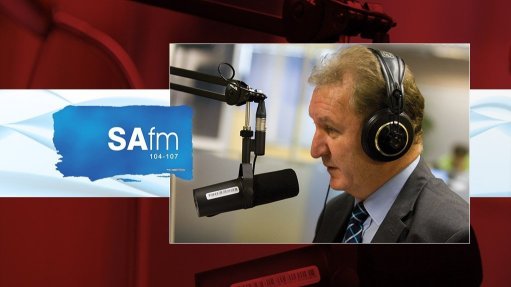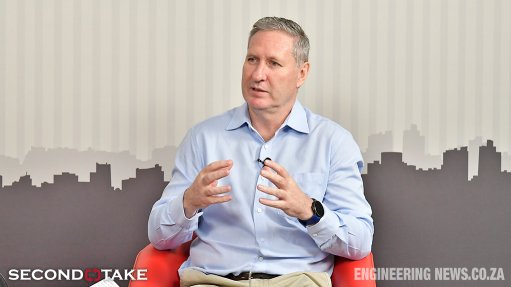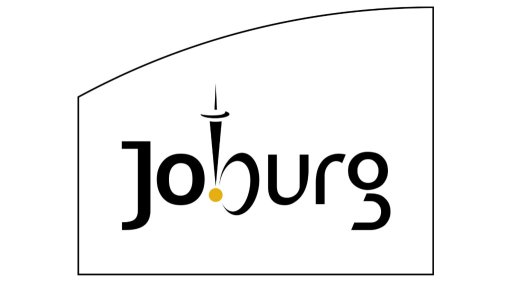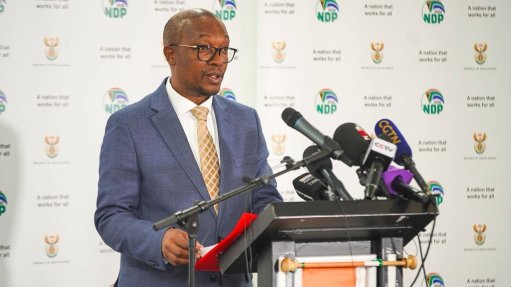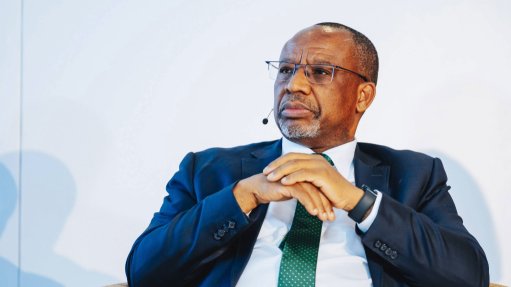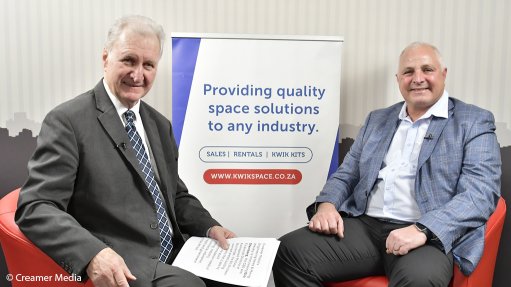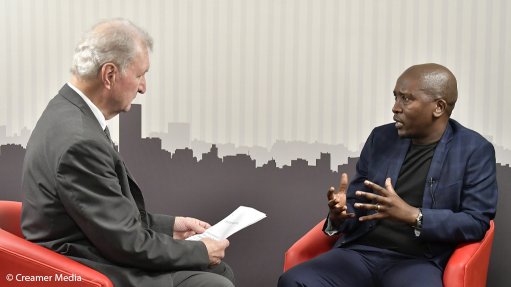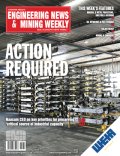South Africa’s Energy Challenge: The World Energy Issues Monitor Unplugged
This article has been supplied and will be available for a limited time only on this website.
By: Mihle Mnweba - Government Relations and Policy Associate at the Energy Council of South Africa
The World Energy Council (WEC) is a global energy think tank that connects leaders, industries, governments and innovators. In order to drive impact and promote effective collaboration, the WEC develops transition tools that help define and better manage successful energy transitions. To leverage global practice, the South Africa WEC committee established under the Energy Council of South Africa has adopted the World Energy Issues Monitor Tool to gain a vantage point in assessing our own priorities and uncertainties as we work towards a Just and successful transition.
Energy leaders, policy makers and stakeholders could further use this tool to gauge where South Africa lies in relation to global challenges. The tool further gives insights as to how countries’ differ, where South Africa differs, and where the opportunities are for South Africa.
The Monitor assesses the impact and uncertainty of numerous issues by gathering feedback directly from policymakers and energy stakeholders, categorising results into Action priorities - areas where countries can actively advance their energy transition efforts; and Critical uncertainties - issues that are of concern to energy leaders and require urgent attention.
The Issues Monitor survey screens core energy transition issues across six categories; geopolitical, economic, and social issues, regulatory regimes, technology game changers, and environmental and climate change. These categories then provide snapshots of emerging trends and transformations across the energy system.
To better explain how this tool works, let’s analyse, compare and unpack the 2025 Issues Monitor results. The tool presents global, regional and local results that highlight main “death threats”; high critical uncertainties affecting the Energy Transition. Some key anomalies and similarities from the results show that:
1.1.1. In the global monitor results, Commodity Prices come out as a critical uncertainty, due to fossil fuel dependency and market volatility as a direct effect of geopolitical tensions, shifting trade, policies and supply chain disruptions.
1.1.2. From a regional perspective, the top critical uncertainty is Access to Capital. Africa has a difficult energy investment landscape that faces policy hurdles, higher investor risk premiums limiting access to affordable financing. Many projects in Africa struggle to sustain impact, reflecting difficult financing and governance barriers.
1.1.3. In the South African Issues Monitor results, Affordability was identified as the ultimate critical uncertainty. Affordability is a cross-cutting element (residential and industrial) that can hinder the progress of the transition in South Africa, referring to society’s ability and willingness to pay, perceived benefits of, and systems costs for reliable and resilient energy services.
Now that we’ve set the scene, let’s unpack these different critical uncertainties. Geopolitical uncertainty has had severe consequences and impact on commodity prices. The physical wars seen in Russia-Ukraine and Israel-Iran have given way to trade wars, prompted by the Trump administration. Sanctions, disrupted supply chains, market uncertainty have all had major negative effects on commodity prices, energy markets and price volatility. This had a ripple effect on inflation and energy security, influencing global economic conditions. A shift away from “climate ambition” led by the US withdrawal from the UNFCCC Paris agreement has cast further doubt on demand and prompted a resurgence of fossil fuels.
South Africa’s uncertainty differs, as was aptly questioned by National Treasury i.e. our policy ambition is likely not affordable in a low growth, high debt environment. After a lost decade and unsustainable levels of unemployment, affordability is an acute crisis for South Africa’s energy sector. Rapid tariff increases in recent years is passing the affordability ceiling of not only low income residential but also industrial sectors, as seen in the loss of the smelter industry. South Africa is the most industrialised economy in Africa and an attractive international investment destination on many fronts, but current reform uncertainty and perceived conflict is undermining investor confidence and what has been akin to a Gold Rush for renewables developers in recent years. A recurring priority for all stakeholders is the need to expand the transmission grid – No Transmission – No Transition. Grid expansion supports the integration of renewable energy sources, enhances energy security, reduces energy loss and accommodates growing demand from electrification.
Policy frameworks aren’t the issue when it comes to grid expansion, funding and investment is. According to Nedbank’s latest Energy Prospects report, South Africa needs roughly R390 billion to fund grid expansion, and the Energy Council of South Africa’s analysis estimates that there is scope for over 23 billion in potential investment within the self-build connections in addition to TDP expansion.
Beyond the obstacles, the Issues monitor also highlights opportunities South Africa is well placed to pursue. Our data centre market is a key and growing sector in Africa, driven by demand for cloud and data sovereignty. This raises the question of the possible role of AI in the energy transition: How can AI automate and accelerate our transition? It can be used to enable integration of renewable energy sources into the grid, and the algorithms can analyse real-time data from energy consumption and grid conditions.
Government could take this opportunity further by exploring the use of AI applications to address uniquely South African challenges, such as illegal electricity connections that place additional strain on the grid. For example, AI could be applied to monitor customer connections and flag abnormal usage patterns.
This is the introduction to the Issues Monitor and the World Energy Council South Africa Committee, which is hosted under the Energy Council of South Africa and made up of representatives from government, business and academia. Using the World Energy Council Tools, the WEC SA Committee facilitates dialogue on how these global frameworks can be localised to shape South Africa’s own transition narrative.
We see these tools as beneficial for Government and, through collaboration between the energy Ministry and WEC SA Committee, believe they can support the creation of a comprehensive national energy transition database that analyses all aspects of this transition and informs better decision making.
For more information regarding WEC SA Committee, please follow me and the Energy Council of South Africa LinkedIn page for updates and dates of upcoming dialogues.
Comments
Announcements
What's On
Subscribe to improve your user experience...
Option 1 (equivalent of R125 a month):
Receive a weekly copy of Creamer Media's Engineering News & Mining Weekly magazine
(print copy for those in South Africa and e-magazine for those outside of South Africa)
Receive daily email newsletters
Access to full search results
Access archive of magazine back copies
Access to Projects in Progress
Access to ONE Research Report of your choice in PDF format
Option 2 (equivalent of R375 a month):
All benefits from Option 1
PLUS
Access to Creamer Media's Research Channel Africa for ALL Research Reports, in PDF format, on various industrial and mining sectors
including Electricity; Water; Energy Transition; Hydrogen; Roads, Rail and Ports; Coal; Gold; Platinum; Battery Metals; etc.
Already a subscriber?
Forgotten your password?
Receive weekly copy of Creamer Media's Engineering News & Mining Weekly magazine (print copy for those in South Africa and e-magazine for those outside of South Africa)
➕
Recieve daily email newsletters
➕
Access to full search results
➕
Access archive of magazine back copies
➕
Access to Projects in Progress
➕
Access to ONE Research Report of your choice in PDF format
RESEARCH CHANNEL AFRICA
R4500 (equivalent of R375 a month)
SUBSCRIBEAll benefits from Option 1
➕
Access to Creamer Media's Research Channel Africa for ALL Research Reports on various industrial and mining sectors, in PDF format, including on:
Electricity
➕
Water
➕
Energy Transition
➕
Hydrogen
➕
Roads, Rail and Ports
➕
Coal
➕
Gold
➕
Platinum
➕
Battery Metals
➕
etc.
Receive all benefits from Option 1 or Option 2 delivered to numerous people at your company
➕
Multiple User names and Passwords for simultaneous log-ins
➕
Intranet integration access to all in your organisation




